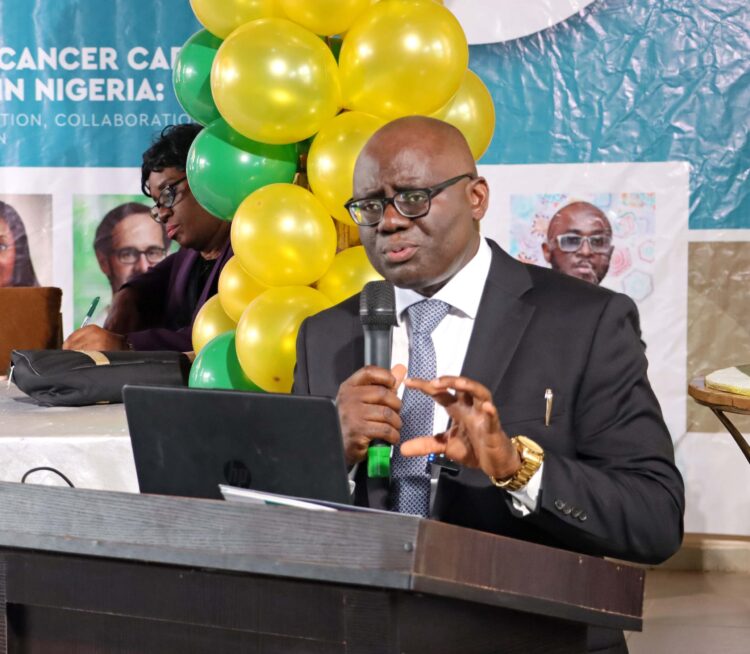The South-West Coordinator of National Institute for Cancer Research and Treatment (NICRAT), Prof. Olusegun Alatise, says cancer is no longer a death sentence, calling for improvement in its care quality.
Alatise stated this at a workshop organised by NICRAT for researchers, oncologists and healthcare professionals across the South-West region, held at the Obafemi Awolowo University (OAU) on Thursday in Ile-Ife, Osun.
The capacity-building was themed “Strengthening Institutional Capacity for Cancer Research and Implementation (SINCCAR).”
The NICRAT coordinator reiterated the importance of home grown expertise and commitment.
“We have made up our minds to stay here and fix what needs fixing; We must raise a new generation of researchers who share this vision and can drive improvements in cancer care quality across the country.
”Established under the NICRAT Establishment Act of 2017, the Institute plays a pivotal role in leading national efforts in cancer prevention, treatment and research.
“It also coordinates with healthcare providers and scientific institutions to foster innovation and improve outcomes.
“Beyond training individuals, the SINCCAR project is viewed as a long-term investment in Nigeria’s fight against cancer.
“By bolstering institutional capacity, providing targeted education, and funding promising research, NICRAT aims to create a ripple effect that can significantly reduce the cancer burden across the nation.
“As Nigeria charts a future in which cancer is no longer a death sentence, efforts like SINCCAR offer a glimmer of hope and a roadmap for action,” he emphasised.
Earlier, Director of Research and Innovation, Dr Nwamaka Lasebikan NICRAT, said this phase of the SINCCAR project was all about building capacity.
Lasebikan said SINCCAR would address the specific institutional gaps identified in earlier assessments.
According to her, the SINCCAR project comprises an assessment of institutional capacity and gap identification, capacity-building training for researchers across Nigeria’s geopolitical zones, and grant provision to support the implementation of cancer research projects.
She maintained that the initiative was not merely academic, but a bridge between research and real-life public health interventions.
”With over 220 million people, Nigeria bears the largest population in Africa, and the toll of non-communicable diseases particularly cancer is growing.
“According to the 2022 International Agency for Research on Cancer (IARC), Nigeria records nearly 128, 000 new cancer cases annually, a figure experts say may rise without urgent, coordinated responses.
“Among Nigerian men, prostate, colorectal, and liver cancers top the list. For women, breast cancer remains the most common, with an estimated 32,200 new cases and over 16,300 deaths per year.
“Cervical cancer follows closely, claiming thousands of lives despite being largely preventable,” she noted.
Lasebikan said that the aim of NICRAT to train South-West researchers was to fight cancer and strengthening institutional capacity for research and implementation in the country.









